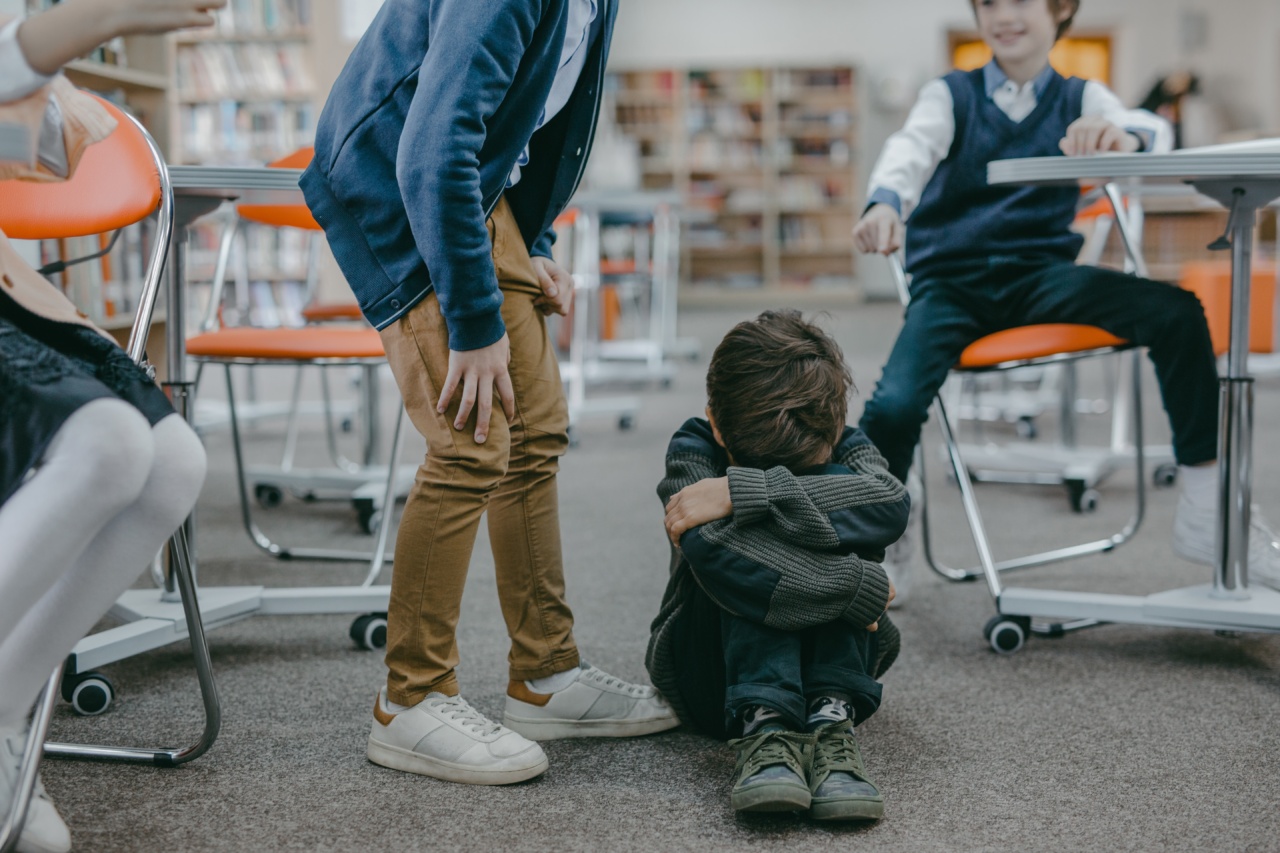Bullying is a repeated and intentional form of physical, verbal, or social aggression toward others with the aim of causing harm.
It is a significant problem in schools and communities, affecting children of all ages, genders, and racial and ethnic groups. According to the National Center for Education Statistics, approximately 21% of students aged 12 to 18 experience bullying in the United States every year.
The effects of bullying are far-reaching and can impact children’s mental and physical health, academic achievement, and social relationships. Unfortunately, much of the impact of bullying is invisible, making it all the more important to understand its consequences.
The Mental Health Impact of Bullying
One of the most significant impacts of bullying is on children’s mental health. Being the victim of bullying can cause depression, anxiety, and other mental health conditions.
Children who are bullied are more likely to experience suicidal ideation and attempt suicide than children who have not been bullied. In fact, a study by Yale University researchers found that being bullied was the most significant predictor of suicidal behavior among adolescents.
Unfortunately, the mental health effects of bullying can persist into adulthood, leading to long-term psychological damage.
The Physical Health Impact of Bullying
Bullying can also have a significant impact on children’s physical health. The stress of being bullied can lead to headaches, stomachaches, and other physical symptoms.
Children who are bullied are also more likely to engage in risky behaviors like drug and alcohol use, which can have long-term health consequences. In addition, the stress of being bullied can impact children’s immune systems, making them more susceptible to illnesses and infections.
The Academic Impact of Bullying
Bullying can also impact children’s academic performance. Children who are bullied may have trouble concentrating in class or may skip school altogether to avoid their bullies.
According to the National Education Association, students who experience bullying are twice as likely to miss school as their peers. Missing school can lead to lower academic performance and ultimately impact children’s ability to succeed in school.
The Social Impact of Bullying
Bullying can also impact children’s social relationships. Children who are bullied may become socially isolated and have trouble making friends. They may also have difficulty trusting others or forming healthy relationships in the future.
In addition, bullying can impact children’s self-esteem, leading to feelings of worthlessness and shame.
The Long-term Impact of Bullying
The impact of bullying can persist long after the bullying has stopped. Children who are bullied may experience feelings of anxiety, depression, and low self-esteem well into adulthood.
They may also struggle to form healthy relationships with others, leading to social isolation and loneliness. In addition, the stress of being bullied can impact children’s physical health, leading to long-term health conditions like heart disease and diabetes.
Preventing Bullying
The best way to prevent the negative impact of bullying is to stop it from happening in the first place. Schools and communities can take steps to prevent bullying by creating safe and supportive environments for all students.
This may include implementing anti-bullying policies, providing education for students and staff about the impact of bullying, and promoting positive social interactions among students. Parents can also play a role in preventing bullying by talking to their children about the importance of treating others with kindness and respect.
Seeking Help
Children who are being bullied or who have been bullied in the past should seek help from a trusted adult, such as a parent, teacher, or school counselor.
These individuals can provide support and guidance to help children cope with the impacts of bullying and recover from the experience. In addition, mental health professionals can provide therapy and other resources to help children overcome the long-term effects of bullying.
Conclusion
Bullying is a significant problem that can impact children’s mental and physical health, academic performance, and social relationships.
The effects of bullying are far-reaching and can persist into adulthood, leading to long-term psychological and physical damage. Preventing bullying and seeking help for those who have been impacted is essential to protecting children’s well-being. By working together, we can create safe and supportive environments that promote kindness, respect, and compassion for all.































